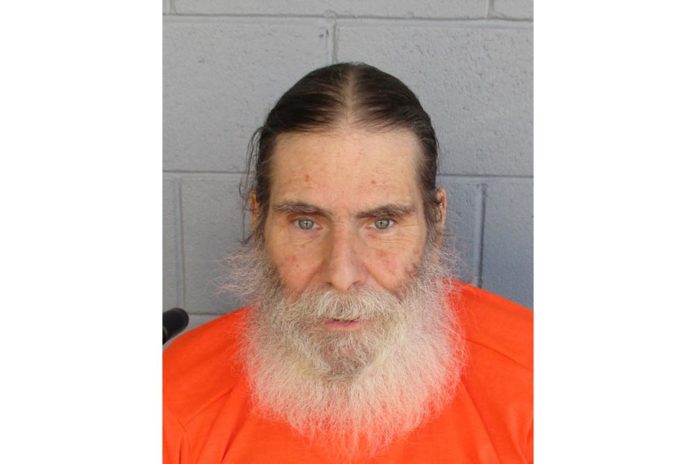
A federal judge has denied an Arizona prisoner’s bid to delay his execution in the 1984 killing of an 8-year-old girl, according to the ruling posted Sunday.
U.S. District Judge Michael Liburdi’s decision keeps on track Wednesday’s scheduled execution of Frank Atwood, who argued the state’s death penalty procedures would violate his constitutional right against cruel and unusual punishment by subjecting him to unimaginable pain.
His lawyers said Atwood, who has a degenerative spinal condition that has left him in a wheelchair, would undergo excruciating suffering if he were strapped to a gurney while lying on his back during his lethal injection execution.
Liburdi said in the ruling made Saturday that he would not block the execution based on Atwood’s claim, noting that the state will provide Atwood with a medical wedge that will relieve pressure on his spine and can also tilt the execution table. He said those accommodations “will minimize the pain Plaintiff experiences when he lies on his back.”
The constitution, Liburdi wrote, “does not require a pain-free execution,” and that Atwood’s position will be similar to what he typically assumes in his cell to limit pain.
Liburdi also rejected challenges to the drug the state plans to use and dismissed Atwood’s claim over Arizona’s use of the gas chamber, saying it was irrelevant because he will be executed using lethal injection.
The challenge to his method of execution is one of a flurry of last-minute appeals by Atwood. He’s also asking the Arizona Supreme Court to delay his execution while his lawyers pursue claims that he is actually innocent of killing the little girl. That court denied a stay late last week but is now considering the new claim.
And his lawyers continue to spar with the state over religious accommodations prior to and during his execution. He has been a practitioner of the Greek Orthodox faith for more than two decades and wants the state to allow him to undergo a religious initiation ceremony before the execution and receive last rites while in the execution chamber. The state has mainly agreed, but the two sides are at odds over exact details. A different federal judge is overseeing that matter.
“The state’s insistence on cyanide gas is a cynical choice to force the acceptance of the danger and incompetence of its lethal injection method, at the cost of embracing Nazi methods of mass extermination,” Joseph Perkovich, an attorney for Atwood, said in an email Sunday.
Atwood was convicted of murder in the 1984 killing of Vicki Hoskinson.
Authorities have said Atwood kidnapped the girl, whose remains were discovered in the desert northwest of Tucson nearly seven months after her disappearance. Experts could not determine the cause of death from the remains that were found, according to court records.
Atwood maintains that he is innocent of the crimes.
Until last month, Arizona went almost eight years without carrying out an execution. The hiatus has been attributed to the difficulty of securing lethal injection drugs as manufacturers refuse to supply them and to problems encountered during the July 2014 execution of Joseph Wood, who was given 15 doses of a two-drug combination over nearly two hours. Wood snorted repeatedly and gasped before he died. His attorney said the execution had been botched.
The hiatus ended on May 11 when the state executed prisoner Clarence Dixon for his murder conviction in the 1978 killing of Deana Bowdoin, a 21-year-old Arizona State University student.
As part of Atwood’s argument to get his execution delayed, his lawyers questioned whether the compounded pentobarbital to be used in the execution meets pharmaceutical standards and whether the state has met a requirement that the drug’s expiration date falls after the execution date.
Prosecutors say Atwood was trying to indefinitely postpone his execution through legal maneuvers.
Two weeks ago, Atwood declined to choose between lethal injection or the gas chamber, leaving him to be put to death by lethal injection, the state’s default execution method.
Arizona, California, Missouri, and Wyoming are the only states with decades-old lethal-gas execution laws still on the books. Arizona, which carried out the last gas chamber execution in the United States more than two decades ago, is the only state to still have a working gas chamber.
In recent years, Oklahoma, Mississippi, and Alabama have passed laws allowing executions with nitrogen gas, at least in some circumstances, though experts say it’s never been done and no state has established a protocol that would allow it.
Atwood’s lawyers also said Arizona could take up executions by firing squad, a method of execution not used in the state.
Republished with the permission of The Associated Press.













